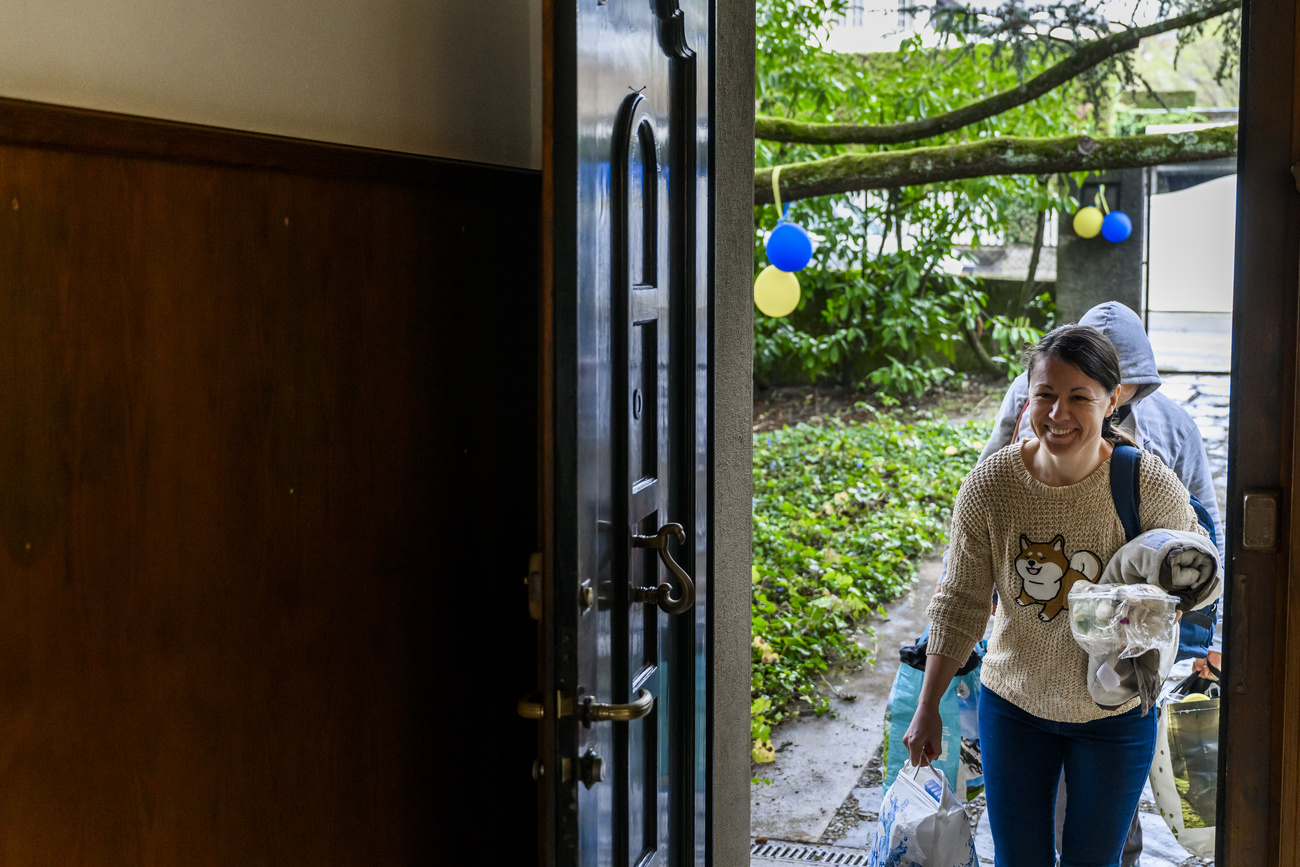
Number of refugees from Ukraine continues to rise

A total of 39,258 refugees from Ukraine have been registered in Switzerland since Russia invaded its neighbour on February 24, according to the State Secretariat for Migration (SEM).
That is 919 more than on Thursday. Of the total so far, 32,208 have been granted S protection status, SEM announced on Twitter on Friday. This special status allows them to stay in Switzerland for a year and to work in the Alpine country.
Latest SEM figures confirm that it is largely “a flight of women and children”. More than two-thirds of those granted S protection status by the end of March were women and girls, while nearly 40% of those seeking protection were also younger than 20.
Ukraine introduced martial law in the wake of the Russian invasion, which requires men aged 18-60 to stay and defend their country.
Distribution among cantons
SEM’s David Keller told the press on Thursday that the Swiss authorities would revert to a regular distribution of refugees among the 26 cantons so as to reduce the burden on some cities. Zurich, Bern and Basel, for example, have been struggling to cope with high numbers, as has canton Ticino.
Asylum seekers, as well as people with S status, cannot normally choose their canton of residence, said Keller. However, since the start of the war, many have found refuge with relatives or acquaintances. And until now, SEM has allocated to the relevant canton all those refugees who could show when they registered that they had an offer of private accommodation there.

More
Swiss adapt housing policy for Ukraine refugees
Just over 5.1 million Ukrainians have fled their country since the Russian invasion, the UN refugee agency UNHCR said on Friday. The number continues to rise, but at a slower daily rate than at the beginning of the war. By far the highest number are in neighbouring Poland.
The International Office for Migration, another UN agency, said there are also 7.7 million people who have fled their homes but are still in Ukraine.

In compliance with the JTI standards
More: SWI swissinfo.ch certified by the Journalism Trust Initiative





























You can find an overview of ongoing debates with our journalists here . Please join us!
If you want to start a conversation about a topic raised in this article or want to report factual errors, email us at english@swissinfo.ch.